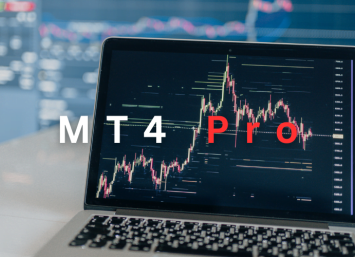The Psychology Of Forex Traders: What Affiliates Need To Know

Forex trading isn’t just about numbers and charts—it’s a psychological battlefield. Traders ride an emotional rollercoaster, swinging between the highs of winning trades and the lows of losses. As a Forex affiliate, understanding these emotions isn’t just helpful; it’s essential. Why? Because traders’ emotions directly impact how they engage with your content.
When you understand what drives traders—fear, greed, hope, and regret—you can craft campaigns that resonate deeply. For example, a trader who feels understood is far more likely to trust your recommendations and take action. Think about it: Would you trust someone who “gets” you, or someone who just pushes a product?
And here’s a stat to drive the point home: 70% of marketers actively invest in content marketing because it works. A well-written broker review, for instance, can lead to hundreds of sign-ups. But it’s not just about writing—it’s about writing with purpose, tapping into the psychology of your audience.
The Role of Content in Building Trust and Driving Conversions
Content is the bridge between you and your audience. It’s how you build trust, educate traders, and ultimately, drive conversions. But not all content is created equal. The best content speaks directly to the trader’s mindset, addressing their fears, desires, and goals.
Take broker reviews, for example. Traders want unbiased opinions before choosing a broker. A detailed review that highlights pros and cons, fees, and platform features can be the deciding factor. And when you add a personal touch—like sharing your own experience with the broker—you build trust.
But content isn’t just about reviews. Tutorials, market analysis, and personal stories all play a role in guiding traders through their journey. The key is to provide value at every stage, from awareness to decision-making.
Key Psychological Traits of Forex Traders
The Fear of Missing Out (FOMO)
FOMO is a powerful force in Forex trading. Traders often fear missing out on profitable opportunities, leading to impulsive decisions. As an affiliate, you can leverage this by creating a sense of urgency.
For example, highlight limited-time offers or exclusive bonuses in your campaigns. A simple CTA like, “Join now and get a 50% deposit bonus—only for the next 48 hours!” can trigger FOMO and drive sign-ups.
The Desire for Quick Profits
Let’s face it: many traders are drawn to Forex for the promise of fast money. While this isn’t always realistic, you can appeal to this desire by showcasing success stories or high-return strategies.
For instance, a headline like, “How I turned $500 into $5,000 in 30 days—here’s how you can too!” grabs attention and taps into the trader’s desire for quick profits. Just be sure to balance this with realistic expectations and risk management advice.
Risk Aversion and Loss Aversion
Traders often fear losing money more than they value potential gains. This is where risk management comes in. By emphasizing tools and educational resources that help traders protect their capital, you can address this fear head-on.
For example, a guide titled, “Learn how to protect your capital with our free risk management guide,” not only provides value but also builds trust.
How Affiliates Can Leverage Trader Psychology in Content Creation

Crafting Messaging That Resonates
Emotional triggers like fear, greed, and hope are powerful tools in your content arsenal. For example, a CTA like, “Don’t miss out on the next big market move—start trading today!” taps into both FOMO and the desire for quick profits.
But be careful not to overdo it. Your goal is to inspire action, not manipulate.
Building Trust Through Empathy and Personal Stories
Traders want to know that you understand their struggles. Sharing personal stories or testimonials can create a deep connection.
For instance, an affiliate who shared their own trading journey—complete with failures and successes—doubled their conversions. Why? Because traders saw themselves in that story.
Providing Value Through Educational Content
Traders are more likely to trust affiliates who offer valuable insights and resources. Create free guides, webinars, or tutorials that help traders improve their skills.
For example, a tutorial series on “How to Use MetaTrader 4” not only educates but also positions you as an authority in the space.
Types of High-Converting Forex Affiliate Content
Broker Reviews
Broker reviews are a staple in Forex affiliate marketing. Traders want unbiased opinions before choosing a broker. A well-structured review that covers pros and cons, fees, and platform features can lead to hundreds of sign-ups.
For example, a review titled, “Top 5 Forex Brokers for Beginners in 2024,” provides clear, actionable information that traders appreciate.
Tutorials and How-To Guides
Traders are always looking to improve their skills. Tutorials and how-to guides are a great way to provide value while subtly promoting your affiliate offers.
For instance, a step-by-step guide on “How to Read Candlestick Charts” not only educates but also builds trust.
Market Analysis and Forecasts
Traders want insights to make informed decisions. Market analysis and forecasts provide this, while also showcasing your expertise.
For example, a weekly forecast titled, “EUR/USD Weekly Forecast: Key Levels to Watch,” adds credibility and keeps traders coming back for more.
Listicles and Comparison Articles
Listicles and comparison articles are quick, digestible, and highly shareable. They provide traders with the information they need in an easy-to-read format.
For example, “10 Best Forex Trading Platforms for 2024” is a great way to compare features side-by-side.
Personal Stories and Testimonials
Personal stories and testimonials build trust and relatability. They show traders that you’ve been in their shoes and understand their challenges.
For example, a story titled, “How I Made $10,000 in My First Year of Forex Trading,” not only inspires but also builds credibility.
Common Psychological Pitfalls and How to Address Them in Content
Overconfidence Bias
Traders who experience a winning streak may become overconfident and take unnecessary risks. As an affiliate, you can help by promoting educational content on the dangers of overconfidence.
For example, an article titled, “5 Mistakes Overconfident Traders Make—and How to Avoid Them,” provides valuable insights while subtly promoting your affiliate offers.
Confirmation Bias
Traders often seek information that confirms their existing beliefs. To address this, provide balanced, data-driven insights.
For example, an article titled, “Here’s why your trading strategy might not work—and what to do instead,” challenges traders’ assumptions and provides actionable advice.
Emotional Trading
Traders who let emotions drive their decisions often make poor choices. Promote tools and resources that help traders stay disciplined.
For example, a guide titled, “How to Stay Calm and Profitable in Volatile Markets,” not only educates but also builds trust.
Case Studies: Psychology and Content in Action
Case Study 1: Turning Fear into Trust
A trader was hesitant to sign up for a broker due to fear of losing money. The affiliate addressed this by offering a free demo account and a risk management guide. Result? The trader signed up and became a long-term client.
Case Study 2: Leveraging FOMO for Higher Conversions
An affiliate used limited-time offers to create urgency and boost sign-ups. The result? A 30% increase in conversions during the campaign period.
Case Study 3: Building Trust Through Empathy
An affiliate shared their own trading struggles and how they overcame them. The result? A 50% increase in engagement and trust from their audience.
Conclusion
Understanding trader psychology is key to creating effective affiliate campaigns. High-converting content educates, engages, and builds trust. Start by analyzing your audience’s pain points and tailoring your messaging accordingly. For example, try incorporating emotional triggers into your next campaign and see the difference!
Trader psychology and high-quality content are powerful tools for affiliates who want to stand out in a competitive market. Ready to take your campaigns to the next level? Download our free guide on trader psychology and content creation to start crafting impactful campaigns today!



